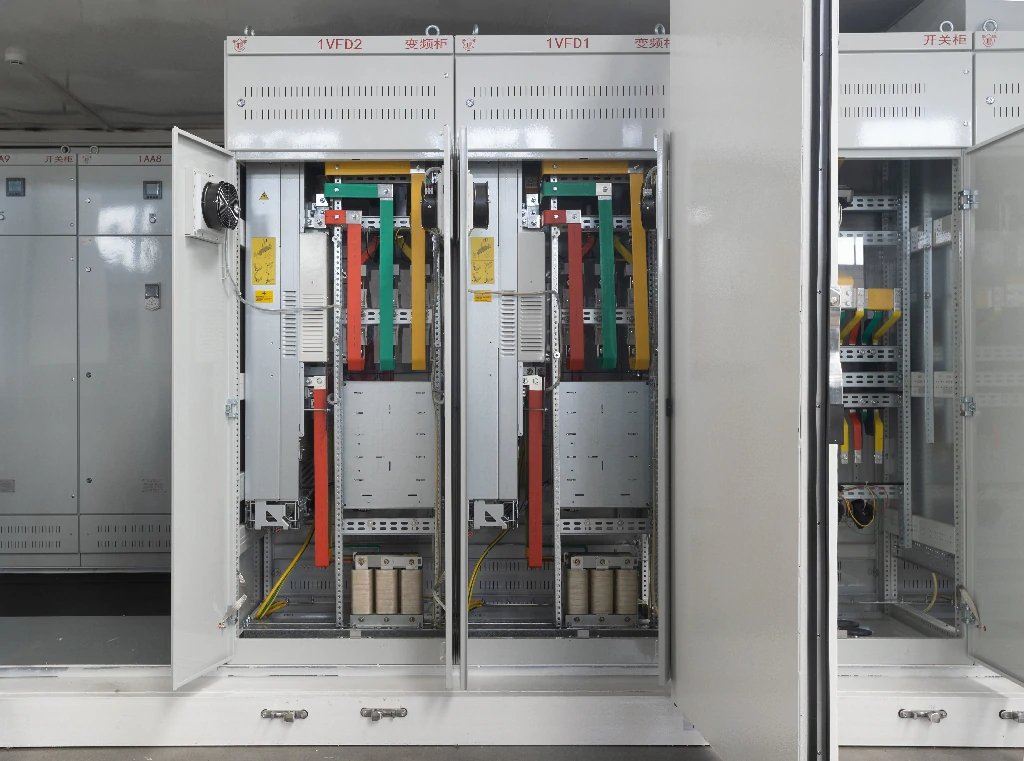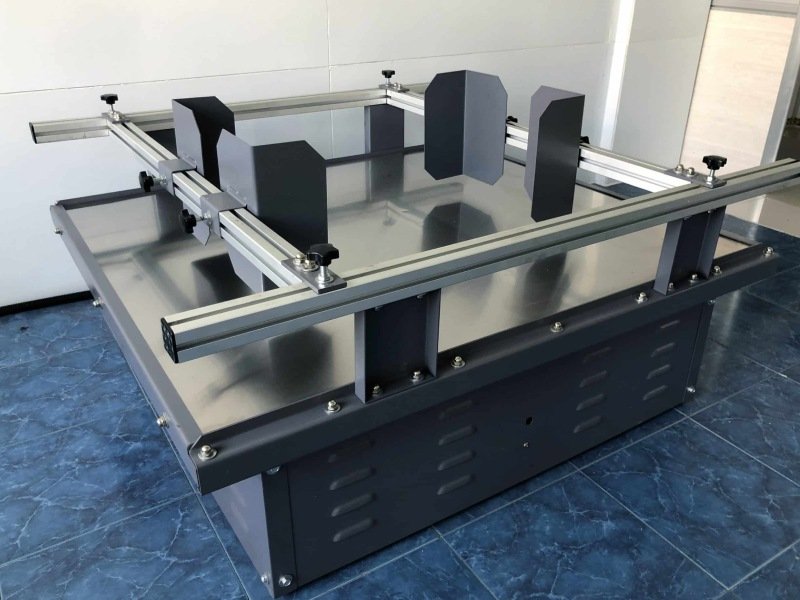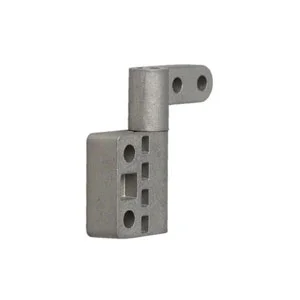In the fast-evolving electrical industry, where precision, safety, and efficiency are paramount, every component plays a critical role in ensuring seamless operations. Among these components, folding pocket handles have emerged as a versatile and innovative solution, addressing the unique challenges faced by electrical engineers. These compact, ergonomic, and durable handles are transforming the way electrical enclosures, cabinets, and equipment are designed, accessed, and maintained. This blog explores the applications, benefits, and design considerations of folding pocket handles, with a focus on their significance for electrical industry engineers. With a target audience of design engineers, maintenance professionals, system integrators, and safety specialists, we delve into how these handles enhance functionality, safety, and compliance in electrical systems.
What Are Folding Pocket Handles?
Folding pocket handles are specialized hardware components designed to provide secure, ergonomic, and space-efficient solutions for accessing or maneuvering electrical equipment. Unlike traditional protruding handles, folding pocket handles are recessed and collapsible, tucking neatly into the surface of a panel or device when not in use. This design minimizes obstructions, enhances safety, and improves the aesthetic appeal of electrical systems. Made from materials like technopolymer, stainless steel, aluminum, or die-cast zinc alloy, these handles are engineered to withstand the demanding conditions of industrial environments, including exposure to moisture, dust, and frequent use.
Folding pocket handles are available in various configurations, including snap-in or screw-mounted designs, and can incorporate additional features such as electrical switches or emergency push buttons. Their versatility makes them ideal for a wide range of applications, from electrical enclosures to portable instrumentation, particularly in the electrical industry where space, safety, and compliance are critical.
Key Applications in the Electrical Industry
Folding pocket handles are uniquely suited to meet the needs of electrical engineers working on diverse projects. Below, we explore their primary applications and how they address the challenges faced by professionals in this field.
1. Electrical Enclosures and Cabinets
Electrical enclosures and cabinets house critical components such as circuit breakers, wiring, control systems, and power distribution units. Folding pocket handles are widely used on these enclosures to provide secure and ergonomic access for maintenance, upgrades, or troubleshooting. Their recessed design ensures that they do not protrude into walkways, reducing the risk of accidental damage or injury in high-traffic environments like data centers, industrial control rooms, or manufacturing facilities.
For example, a folding pocket handle on a server rack allows engineers to open the panel quickly to access internal wiring without obstructing nearby equipment. The handles’ compact design also saves valuable space, which is critical in densely packed environments. Additionally, materials like stainless steel or technopolymer ensure durability, resisting corrosion even in humid or chemically aggressive settings.
Benefit for Engineers: By integrating folding pocket handles, design engineers can create enclosures that are both functional and safe, meeting ergonomic and safety standards while optimizing space utilization.
2. Electronic Equipment and Instrumentation
In the electrical industry, engineers often work with portable or semi-portable electronic equipment, such as test instruments, oscilloscopes, or power analyzers. Folding pocket handles are ideal for these applications, providing a convenient and ergonomic way to carry or reposition devices during installation, testing, or maintenance. The handles fold away when not in use, maintaining a sleek and compact profile that is essential for equipment used in field operations or laboratory settings.
For instance, a folding handle on a portable power quality analyzer enables an engineer to transport the device to different sites easily. The handle’s robust construction ensures it can withstand frequent handling, while its foldable design prevents damage during storage or transport.
Benefit for Engineers: Maintenance engineers benefit from the portability and durability of folding pocket handles, which streamline workflows and reduce physical strain during equipment handling.
3. Safety and Emergency Access
Safety is a top priority in the electrical industry, where rapid response to emergencies can prevent equipment damage or ensure operator safety. Folding pocket handles with integrated electrical switches (mono- or bistable) or emergency push buttons are designed for applications requiring quick and safe access to shut off power or open panels. These handles combine access and control functions, allowing engineers to respond swiftly to critical situations.
For example, a control panel in an industrial automation system may feature a folding pocket handle with an emergency stop button. In the event of a fault, the engineer can press the button to halt operations and open the panel to address the issue, all in one streamlined action. This integration enhances operational safety and reduces response times.
Benefit for Engineers: Safety and compliance engineers can leverage these handles to design systems that meet stringent safety regulations, such as those outlined in IEC or OSHA standards, while maintaining user-friendly access.
4. Space-Constrained Applications
In compact electrical systems, such as those found in telecommunications, networking, or renewable energy installations, space efficiency is a critical consideration. Folding pocket handles are designed to minimize protrusion, making them ideal for applications where space is at a premium. Their recessed and foldable nature ensures that they do not interfere with adjacent equipment or obstruct access to other components.
For instance, in a rack-mounted uninterruptible power supply (UPS) unit in a server room, a folding pocket handle allows engineers to access the unit for maintenance without requiring additional clearance space. This is particularly valuable in environments where equipment is densely packed, and every inch counts.
Benefit for Engineers: System integrators can use folding pocket handles to design compact, efficient systems that maximize usable space while maintaining accessibility and safety.
5. Cleanroom and Hygienic Environments
Certain electrical applications, such as those in semiconductor manufacturing or pharmaceutical production, require equipment to operate in cleanroom environments. Folding pocket handles, particularly those in white or “CLEAN” versions, are designed to prevent dust or residue buildup, making them suitable for these settings. Their smooth surfaces and corrosion-resistant materials, such as technopolymer or stainless steel, facilitate easy cleaning and ensure compliance with hygiene standards.
For example, a control panel in a semiconductor cleanroom may feature a white folding pocket handle to maintain a sterile environment while providing ergonomic access to electrical components. The handle’s design minimizes crevices where contaminants could accumulate, ensuring long-term reliability.
Benefit for Engineers: Design engineers working on cleanroom applications can rely on these handles to meet stringent hygiene and durability requirements, reducing maintenance costs and ensuring compliance with industry standards.
6. Compliance with Industry Standards
Regulatory compliance is a cornerstone of electrical engineering, particularly in global markets where products must adhere to environmental and safety standards. Folding pocket handles are often RoHS-compliant, meeting the requirements of EU Directive 2011/65/EU for restricting hazardous substances in electrical and electronic equipment. This ensures that the handles are safe for use in a wide range of applications, from renewable energy systems to industrial automation.
For example, a folding pocket handle used in a solar inverter cabinet must comply with RoHS standards to ensure the product can be sold in European markets. The handle’s materials and manufacturing processes are designed to minimize environmental impact, aligning with the industry’s push toward sustainability.
Benefit for Engineers: Compliance engineers can confidently integrate RoHS-compliant folding pocket handles into their designs, ensuring products meet global regulatory requirements and appeal to environmentally conscious customers.
Design Considerations for Electrical Engineers
When selecting folding pocket handles for electrical applications, engineers must consider several factors to ensure optimal performance and compatibility. Below are key design considerations tailored to the needs of electrical industry professionals.
1. Material Selection
The choice of material is critical to the handle’s performance in specific environments. Common materials include:
- Technopolymer: Lightweight, corrosion-resistant, and cost-effective, ideal for indoor applications or cleanroom settings.
- Stainless Steel: Highly durable and resistant to corrosion, suitable for harsh environments like outdoor electrical enclosures or marine applications.
- Aluminum: Lightweight yet strong, often used in portable equipment where weight is a concern.
- Die-Cast Zinc Alloy: Offers a balance of strength and affordability, suitable for general-purpose applications.
Engineers must select materials based on environmental conditions, such as exposure to moisture, chemicals, or extreme temperatures, as well as aesthetic requirements for customer-facing equipment.
2. Ergonomics and Usability
Folding pocket handles are designed with ergonomics in mind, reducing strain during repetitive tasks like opening panels or carrying equipment. Engineers should prioritize handles with smooth edges, comfortable grips, and intuitive folding mechanisms to enhance usability. For maintenance engineers, ergonomic handles can significantly improve workflow efficiency and reduce the risk of repetitive strain injuries.
3. Customization Options
Folding pocket handles are available in various configurations to meet specific project requirements. Engineers can choose from different assembly types (e.g., snap-in, threaded screws), colors (e.g., white for cleanrooms, black for industrial settings), and additional features like electrical switches or emergency buttons. Customization ensures that the handles integrate seamlessly with existing designs and meet functional and aesthetic goals.
4. Safety Features
In applications where safety is paramount, engineers should consider handles with integrated safety features. For example, handles with emergency push buttons or electrical switches can enhance control and reduce response times in critical situations. Additionally, the recessed design of folding pocket handles minimizes the risk of snagging or accidental activation, improving overall safety.
5. Space Efficiency
The compact and foldable nature of these handles makes them ideal for space-constrained applications. Engineers should evaluate the handle’s footprint and folding mechanism to ensure it fits within the available space without compromising accessibility. This is particularly important in applications like server racks or telecommunications cabinets, where space is limited.
6. Regulatory Compliance
Compliance with industry standards, such as RoHS, IP ratings for dust and water resistance, or UL certifications, is essential for electrical engineers. Folding pocket handles that meet these standards ensure that the final product is safe, reliable, and marketable in global regions. Engineers should verify the handle’s compliance documentation during the selection process.
Benefits for Electrical Engineers
Folding pocket handles offer a range of benefits that directly address the needs of electrical industry engineers. These benefits include:
- Space Efficiency: The recessed and foldable design maximizes usable space, critical in densely packed electrical environments.
- Safety: Minimizes protrusions, reducing the risk of injury or equipment damage, and supports emergency access features for rapid response.
- Durability: High-quality materials withstand frequent use and harsh conditions, reducing maintenance costs and extending equipment lifespan.
- Regulatory Compliance: RoHS-compliant handles ensure products meet environmental and safety standards, facilitating global market access.
- Versatility: Suitable for a wide range of applications, from enclosures to portable devices, offering flexibility in design and integration.
- Aesthetic Appeal: Sleek and modern designs enhance the visual appeal of electrical equipment, important for customer-facing applications like commercial control panels.
Case Studies: Folding Pocket Handles in Action
To illustrate the real-world impact of folding pocket handles, let’s explore two hypothetical case studies tailored to the electrical industry.
Case Study 1: Data Center Server Rack Upgrade
A data center operator needed to upgrade its server racks to improve accessibility and safety for maintenance engineers. The existing protruding handles were causing obstructions in narrow aisles, leading to inefficiencies and safety concerns. The engineering team selected stainless steel folding pocket handles with snap-in assembly for the new racks.
Outcome: The recessed handles eliminated obstructions, allowing engineers to navigate aisles more easily. The foldable design ensured quick access to server components, reducing maintenance time by 20%. The stainless steel material provided durability in the humid data center environment, and the RoHS-compliant handles met regulatory requirements for the European market.
Case Study 2: Cleanroom Control Panel Design
A semiconductor manufacturer required control panels for a new cleanroom facility. The panels needed to maintain a sterile environment while providing ergonomic access for operators. The design team chose white technopolymer folding pocket handles in a “CLEAN” configuration, designed specifically for hygienic environments.
Outcome: The handles’ smooth surfaces and corrosion-resistant material prevented dust buildup and facilitated easy cleaning, meeting cleanroom standards. The ergonomic design reduced operator fatigue during repetitive tasks, and the compact footprint allowed for a denser panel layout, optimizing space in the cleanroom.
Future Trends and Innovations
As the electrical industry continues to evolve, folding pocket handles are likely to see further advancements. Emerging trends include:
- Smart Handles: Integration of IoT-enabled sensors or switches to monitor access or equipment status, enhancing automation and security.
- Sustainable Materials: Increased use of eco-friendly materials to align with the industry’s focus on sustainability and circular economy principles.
- Advanced Customization: 3D printing and modular designs to create tailored handles for niche applications, reducing lead times and costs.
- Enhanced Safety Features: Development of handles with biometric locks or advanced emergency controls for high-security electrical systems.
These innovations will further solidify the role of folding pocket handles as a critical component in the electrical industry, offering engineers new tools to address evolving challenges.
Conclusion
Folding pocket handles are more than just hardware—they are a game-changer for electrical industry engineers seeking to balance functionality, safety, and efficiency in their designs. From electrical enclosures to cleanroom control panels, these handles offer unmatched versatility, durability, and compliance with industry standards. By addressing the unique needs of design engineers, Hawkins, maintenance professionals, system integrators, and safety specialists, folding pocket handles are revolutionizing the way electrical systems are accessed and operated.
As the electrical industry continues to demand innovative solutions for space-constrained, safety-critical, and regulatory-compliant applications, folding pocket handles stand out as a reliable and forward-thinking choice. By carefully considering material selection, ergonomics, customization, and compliance, engineers can leverage these handles to create systems that are safer, more efficient, and ready for the future. Whether you’re designing a cutting-edge control panel or upgrading a legacy enclosure, folding pocket handles are the key to unlocking new possibilities in electrical engineering.







